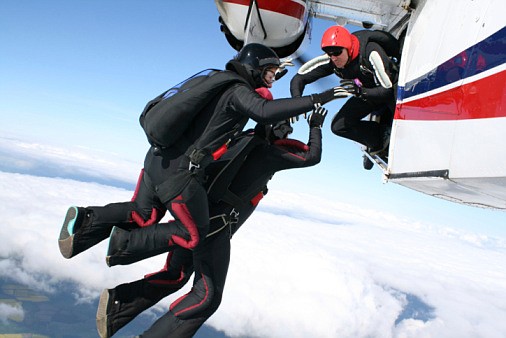A senior beginner's guide to skydiving
February 27, 2012 at 6:00 a.m.
Some folks have claimed that George W. Bush, Sr. is a bit extreme. In June of 2009, he celebrated his 85 th birthday by pulling a tandem skydive. At first consideration, this may seem extreme, but let the records include Frank Moody of Australia, who completed his first skydive while still a pup (at the youthful age of 101 years old). Lots of senior citizens are ready to learn skydiving. There is something about that big leap that shifts the years and loosens the feathers.
When undergoing tandem skydiving training, what issues confront a senior? Here are 6 concerns.
- Good Health: Modern medical advances enable longer life spans and better personal health, but most skydiving schools do impose additional restrictions on older participants. Do not attempt skydiving if you suffer from heart problems, epilepsy or generally poor health conditions.
- Weight Limitations: People weighing more than 220 pounds need not try to learn skydiving. The equipment is not designed to exceed that maximum.
- Dentures: They can be swallowed, lodged in the esophagus or hurled into open air. Leave them home or be certain they are secure.
- Eyeglasses: Don't worry about them. The skydiving training school provides goggles that fit snuggly over eye glasses.
- Disabilities: Some restrictions apply. Before you attempt to learn skydiving, consult with the instructors (and your physician). Be open, but be willing to accept rejection.
- The Landing: The landings are typically gentle and safe, but osteoporosis and other bone related complications make skydiving a no-win sport.
You are never too old to take to the wind, but be honest when making the decision. Enjoy the drop.
Content Provided by Spot55.com





